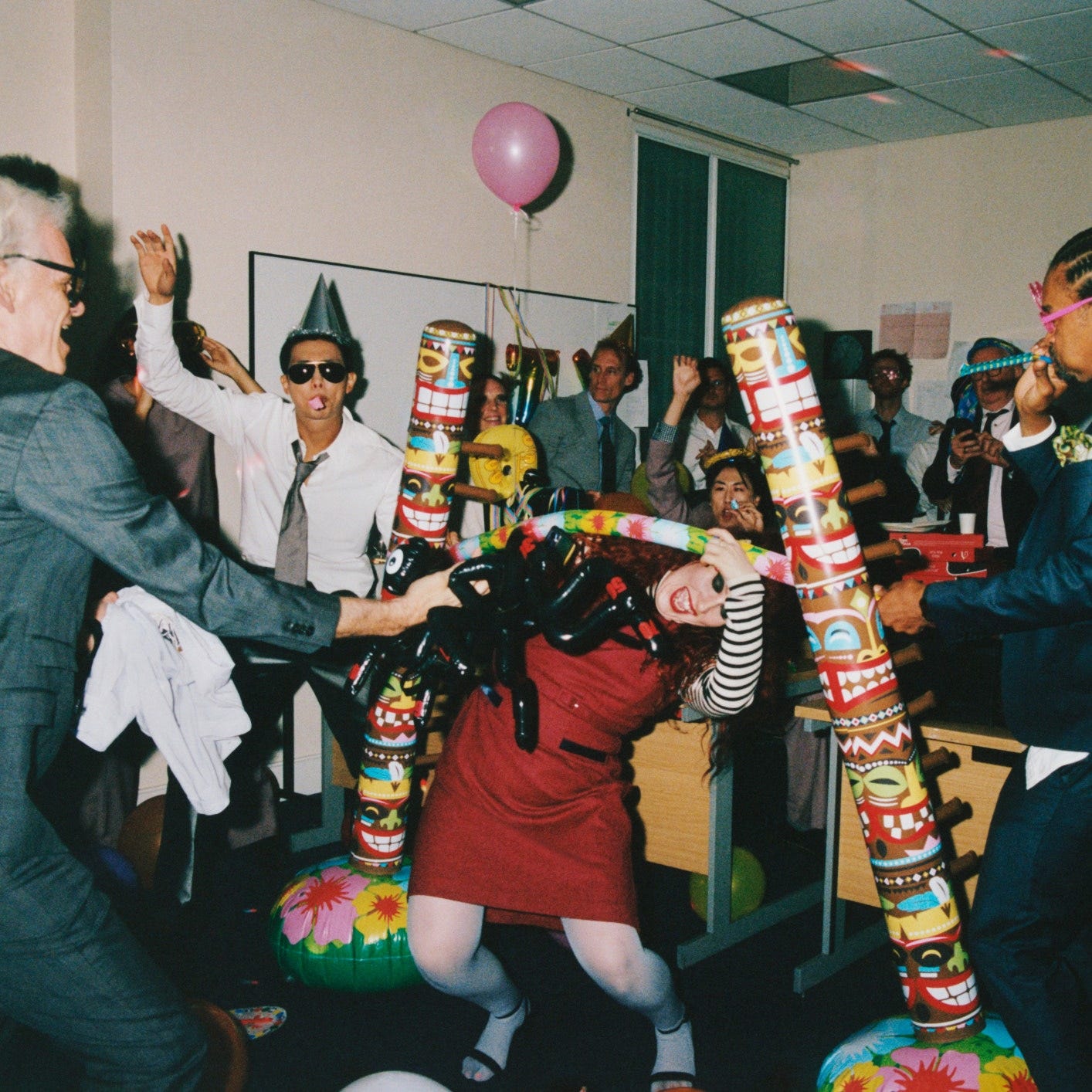RM's Quest for Expression
A comparative analysis and review of rapper RM of BTS's most recent solo albums, Indigo and Right Place, Wrong Person.
Credit to doolsetbangtan for lyric translations for Indigo. Credit to bangtansubs for the lyric translations for Right Place, Wrong Person.
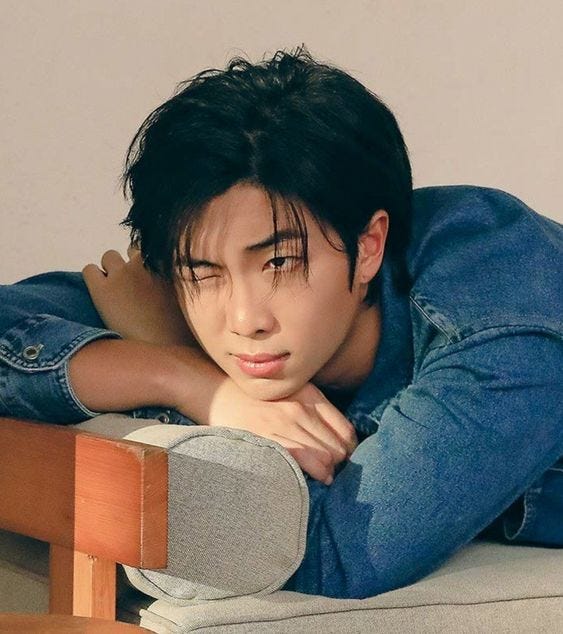
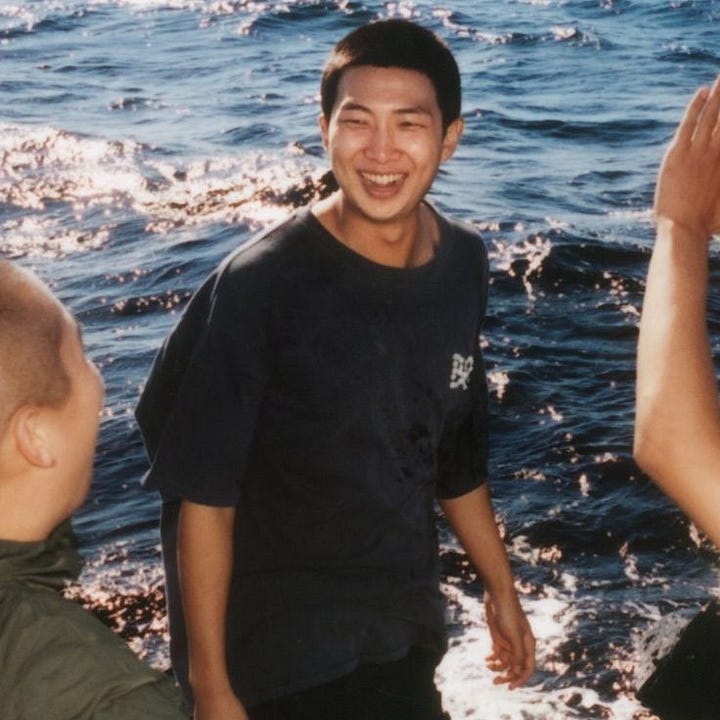
Introduction
Rapper and songwriter RM is no stranger to the complexities of music and music making. As of May 2024, he was credited as a songwriter on 225 songs under the Korea Music Copyright Association. He is 29.
From this statistic alone, it’s clear that RM is not just passionate about music but has knowledge and skill in fashioning songs. The album Indigo was released in December 2022, and it marked the release of RM’s first solo album. Previously, he had released two solo works, which he dubbed “mixtapes”: RM (2015) and Mono (2018). Everyone expected Indigo to be RM’s only album before enlisting for his mandatory military service, but RM soon revealed he was working on something else. Right Place, Wrong Person (RPWP) was released in May 2024.
As two works that were released in such close proximity to one another, I’ll examine the two albums in conversation with one another.
Album Covers
From the get go, the album covers create a thesis statement on the albums’ differences.
Indigo’s cover is a photo of RM sitting by himself on the ground dressed in denim. To his right sits a stack of blue jeans and above him is artwork of the artist referenced on the first track, Yun Hyong-keun. If you purchase a copy of the physical album, you’re met with a white cardboard box with simple black text that reads:
“Record of RM : Indigo
From the colors of nature, human, etc.”
The covers are simple in nature, relying on lines and square shapes to create the imagery for the album.
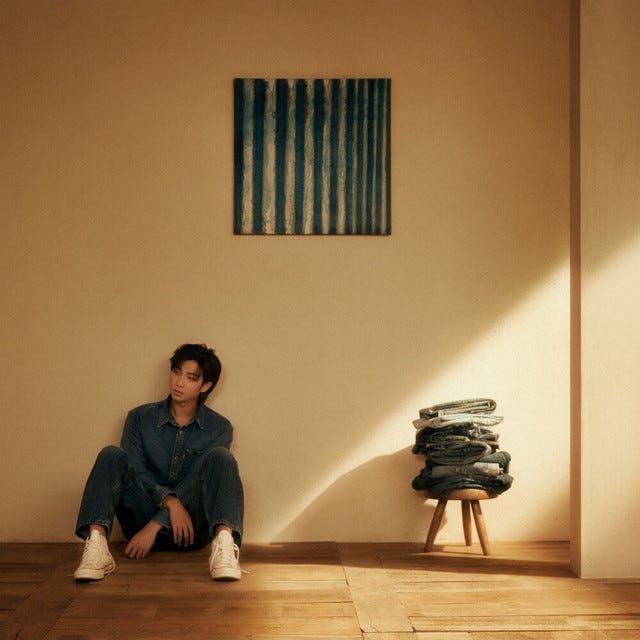
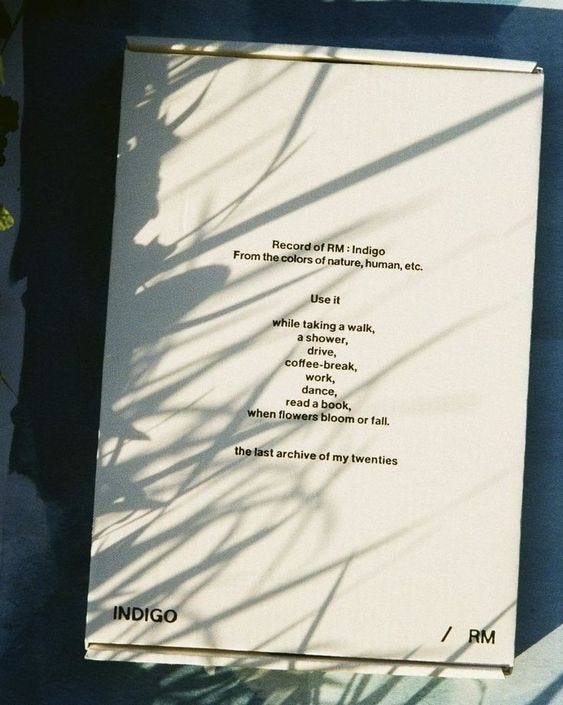
The album cover of Right Place, Wrong Person is a group of nine people all linking arms. It looks like an image of a wedding party, with a bride and groom standing in the middle wearing white, while the groomsmen an bridesmaids stand on the outsides wearing pink and black. They are on a beach, facing away from a city skyline, their pants and dresses dirty. RM stands to the right, hard to find in the lineup of people. On the physical version is a handful of cartoon images, not entirely decipherable upon a first glance. RPWP’s images are chaotic. More people and images are present as compared to Indigo’s simplicity.


In Indigo, RM is alone surrounded by simple shapes. In RPWP, RM is surrounded by others, nearly indistinguishable. These images are entirely descriptive of their albums.
Indigo
On Indigo’s CD cover, the album is described as “the last archive of [RM’s] twenties.” The diversity of genres help to demonstrate the hectic nature of this decade. However, with only two songs that could truly be categorized as ‘upbeat’ out of ten tracks, the album seems to convey a sense of reflection and serenity.
Songs like “Yun (with Erykah Badu)” and “Still Life (with Anderson .Paak)” speak of RM’s struggle as he walks the road less traveled by. In “Yun (with Erykah Badu),” he says,
“The place for me is always the pipeline along the border.”
And in “Still Life (with Anderson .Paak),” he notes that he
“want[s] to escape the frame of this canvas.”
In these songs and others, RM recounts how he does not fit, always on the outside or feeling unsatisfied when he is on the inside.
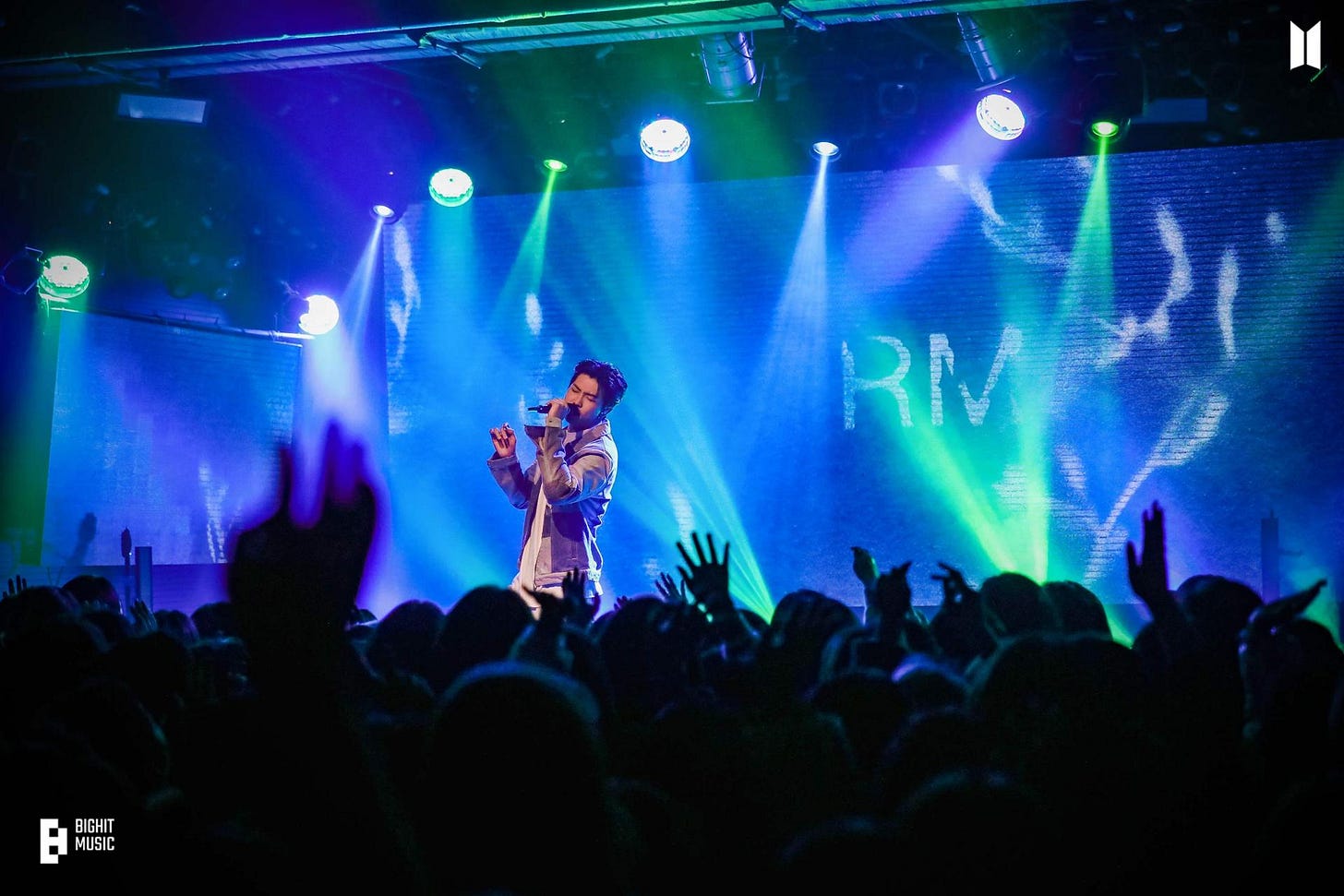
Indigo continues to reckon with this individuality across all ten songs. RM moves into despair on the topic of uniqueness as the songs continue, lamenting his loneliness. Additionally, RM shares sentiments that ring of depression, a struggle to find a reason to carry on. In “Hectic (with Colde)” he says,
“Yesterday was a hectic
There was nothin’ romantic
If I can just find a reason
To keep this endless chasin’.”
As the album continues, we hear songs that are diverse in sound but contain similar themes of depression, ostracism, and loneliness. Throughout the album, art is used as a lens in which to view these topics. Songs like “Yun (with Erykah Badu)” or “Still Life (with Anderson .Paak)” make clear reference to visual art, but RM also frequently mentions poetry in his lyrics. This is most notable in the song “Wild Flower (with youjeen),” where RM speaks of an epiphany, a sort of closure to the issues he’s struggled with so far.
Rather than looking for purpose in his individuality, a loved one, or his own despair—as he has in the songs up until now—RM finds purpose in art. He says:
“Yeah, my beginning was poetry
It’s the one and only strength and dream that has kept me going.”
“Wild Flower (with youjeen)” features a play on words ‘flower’ and ‘firework’ (poetic wordplay, if you will). The song is a reckoning of fame and RM’s sense of self. He now accepts that while he will continue to burn bright and loud like a firework, his inner self is more that of a simple wildflower. He is a combination of both these things—a “flowerwork.”
The final song on Indigo, “No. 2 (with parkjiyoon) is one that can only be made with experience and age behind you. The lyrics speak of moving on, advising,
“Dear, don’t look back anymore
Whatever path you take, there will always be regrets […]
No lookin’ back, no.”
In “No. 2 (with parkjiyoon),” we get a further look into RM’s epiphany from “Wildflower (with youjeen).” He has come to terms with this idea throughout his twenties, and thus, this album:
“After all this time, there is only one thing I’ve learned
I’ll be forever me.”

Right Place, Wrong Person
If Indigo was an “archive,” pristine and polished for an audience, then Right Place, Wrong Person is the couple of lines you write on a napkin at a gas station and leave in the trash can before you go.
This is not to say that Right Place, Wrong Person is a bad or sloppy album. On the contrary, RPWP is arguably RM’s best foray into honesty and utilizing sound to convey emotion. It’s an album that doesn’t shy away from being both goofy and gut-wrenchingly real all at once.
The sounds in this album are chaotic, a conglomeration of funky bass, reed instruments, and galactic-sounding synths. No two songs sound the same—similar to Indigo, but these songs are even more distinct. Although they bleed seamlessly into one another on the album, they are all very unique, relying on different styles of music to create a vast soundscape.

RPWP is unlike anything RM has released prior. Indigo was the kind of album where RM used metaphor, imagery, and symbolism to convey his experiences. RM has always been a poet, knowing the true definition of rap—rhythm and poetry—and how to utilize it to create meaning. He rarely spells his meaning out in a straightforward way, and Indigo is no exception. He plays with lyrics and sound to let the listener come to their own conclusions.
I argue that RPWP goes even further with this; it feels like RM is trusting the listener in a way he didn’t in Indigo. Indigo asks the audience to come to their own conclusions, but RM holds our hand the whole way through. He makes his symbolism clear, guiding us along the path of the album. RPWP does not do this. RM has used his wit and creativity to entirely trust the audience to make what they will of these words and sounds, and if you can’t figure it out…oh well.
RPWP’s lyrics reflect the confidence felt in the tone and sound of the album. In “out of love,” RM says:
“Smoking kills
It’s my fuckin’ business you bitch stop don’t talk shit.”
This is a call out to fans and media who report and shame idols if they’re so much as seen with a cigarette. With his life so often policed, RM used Indigo to lament on the topic, but in RPWP he claps back.
But don’t get me wrong—RPWP still has the poetic aura that makes Indigo so special. The clever lyricism is a characteristic of RM’s writing, and this album is no exception. It often reads as a breakup album, with poetics on the topic of relationships. If Indigo was a reflection on the self, RPWP is a reflection on the self with another. In “Nuts,” he raps:
“Since you left, I’ve been alive for the very first time
Every night, I write a will to send to my past self
One glass of whiskey and all the memories will rush out
I pray to a god I don’t believe in
I wish you happiness, so that I can break free
from the twenties where you were everything to me.”
This album is embedded with romantic nihilism, or thoughts on a relationship ending. In “out of love” (as if the title doesn’t say it all already) he says,
“Poetry’s dead and love’s been buried
Since the truth you and I believe are different anyway.”
In “? (Interlude)”:
“I just hope you remember me
The best grave in your cemetery
You know you got the best of me.”
RPWP mixes the intense emotions of an end to a relationship with inner turmoil about RM’s public perception. In this way, the content is very similar to Indigo, where RM spoke of his struggle to be in the public eye and the ache of loneliness. Where Indigo was a thoughtful analysis of these emotions, RPWP is a splattering of the non-distilled emotions across the songs.
In 2023, RM went to a Buddhist temple and confided in a monk, who went on to spew the information RM had shared to news outlets. In 2022, BTS made history when they visited the White House and met with President Joe Biden. In the song “Groin,” RM makes reference to these two events:
“I mess it up like this all the time
I can’t be a monk
Other people’s words, they never come to me right
Not a fuckin’ diplomat.”
We see that in this album, RM is not worried about calling people or institutions out. And, although the means to the conclusion are different here than on Indigo, we see that the the lyrics from “Groin”
“What am I supposed to represent?
I only represent myself”
are reminiscent of the lyrics in “No. 2 (with parkjiyoon)”:
“After all this time, there is only one thing I’ve learned
I’ll be forever me.”
After an album’s worth of ‘fuck you’s’ to fame and the person that broke his heart, RPWP’s final song is titled “Come back to me.” The song is slow and distinct from the rest of the album in its stillness. The lyrics seem to contradict the rest of the album, when RM sings over and over:
“Come back to me
Like you used to”
and
“You are my pain, divine, divine.”
Here lies his final wish, after a handful of songs about this person who hurt him so brutally—his final request is for them to “come back.” Despite the pain, they are divine. Maybe even because of the pain, they are divine.
The album ending with this vulnerability untethers the rest of the songs. Where Indigo came to a straightforward conclusion of “no lookin’ back,” RPWP can’t come to such a tidy end. It’s a reflection of the album as a whole, which is messy and raw. Maybe nothing was learned from all of this pain. Maybe at the end of the day, the pain is worth it just to be held again.

Conclusion
Both Indigo and RPWP are masterpieces in lyricism, sound, and concept. Both albums know entirely what they are, and they serve different purposes. The difference in the narrative methods between them shows RM’s mastery of sound and storytelling. His ability to make different songs/albums for different phases of life/emotional states with such honesty is not to be overlooked.
Whether the lyrics are straightforward upon a first listen, or unclear after five different listens, there is something in these albums that transcend language. You don’t have to speak Korean, English, or Japanese (all languages utilized across the albums) to understand the raw emotion in these songs.
Through Indigo and Right Place, Wrong Person, RM has established himself as a present day poet and architect of sound. He is a creator who is unafraid to use multilingualism, rhythm, and instruments as tools of expression.
These skills, and his ability to wield them with great intention, mark RM as one of the most creative voices in modern music.



